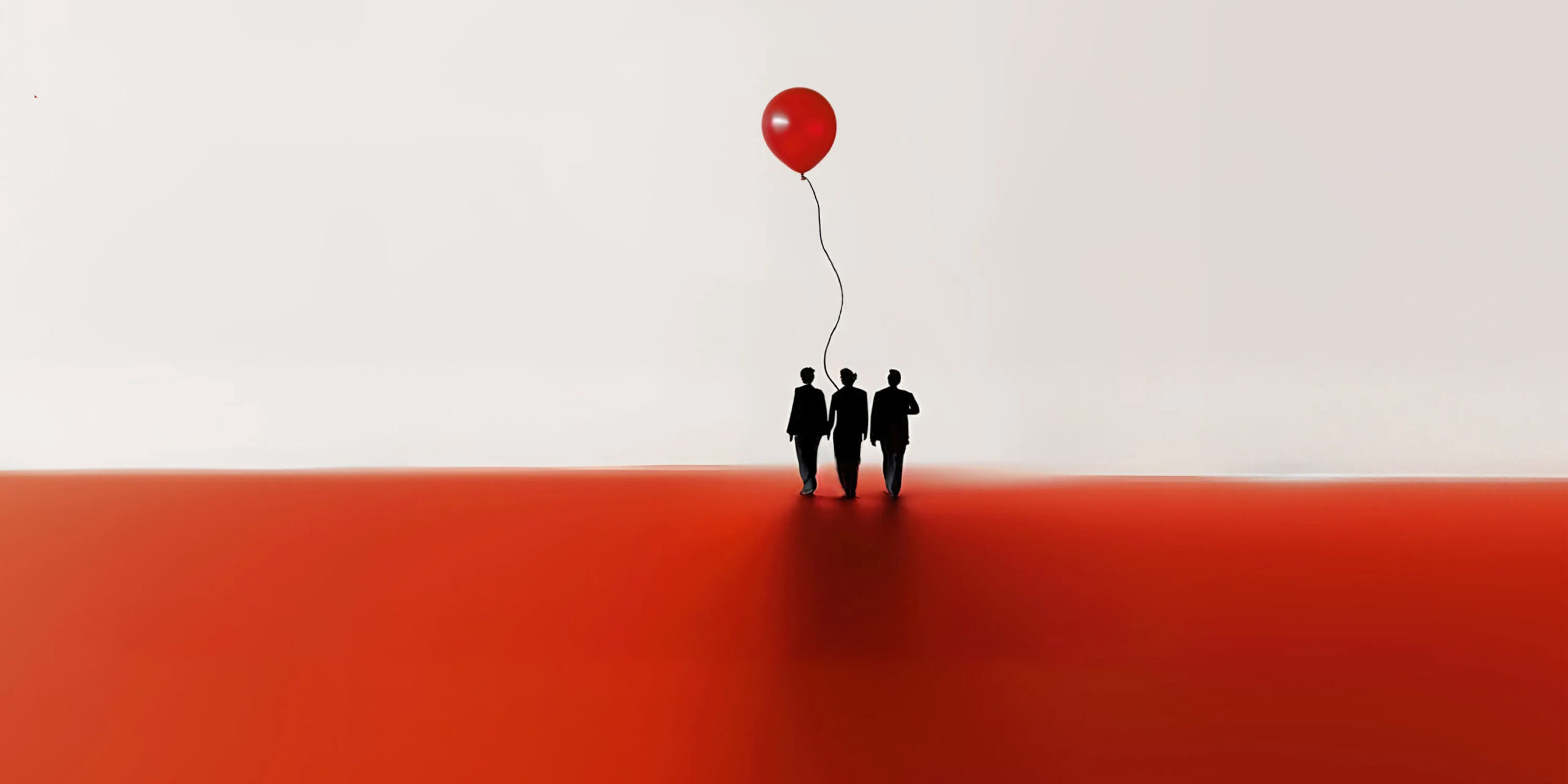
POSTCITY, First Floor, Conference Hall
-
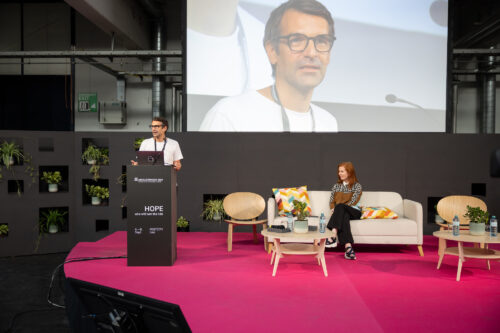
Calculating Empires: Mapping Technology and Power Across Time
Kate Crawford (AU), Vladan Joler (RS), Frederike Kaltheuner (DE)
How can we understand the operations of technology and power in our era? Our technological systems are increasingly complex, interconnected, automated and opaque. The industrial transformations in AI are further concentrating power, while accelerating polarization and alienation.
-
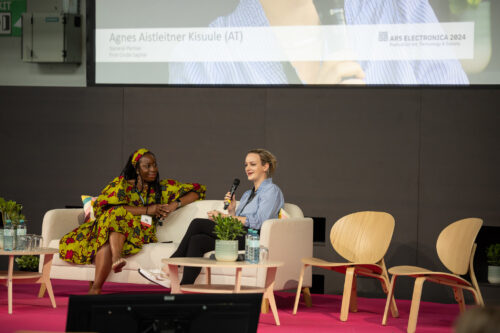
Alternatives | Digital Technologies for New Economic Models
Petia Niederländer (AT), Rafael Madureira dos Anjos (BR), Agnes Aistleitner Kisuule (AT), Rita Isiba (AT)
Can alternative, individual uses of technologies give us a glimpse into how systemic change might look like? We spotlight three examples that use new technologies to reimagine financial and economic models or hold governments accountable for their spending.
-
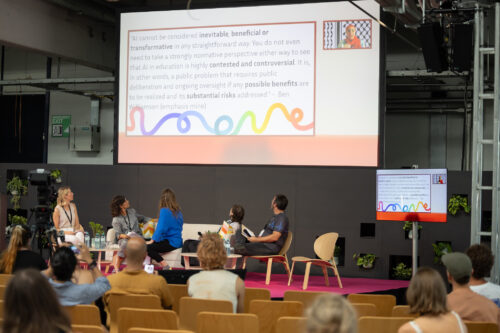
Alternatives | Digital Technologies for Education
Maha Bali (EG), Martin Hollinetz (AT), Martyna Marciniak (PL), Sowjanya Suraj (IN), Eva Knibbe (NL), Paulien Gerlings (NL), Karin Gabriel (AT)
Digital technologies caused a shift in our educational models, from opening up new possibilities (online learning, EdTech) to requiring new forms of (digital/visual) literacy. We spotlight five examples to illustrate the multitude of approaches to education through digital technologies and literacy about the digital landscape we navigate daily.
-
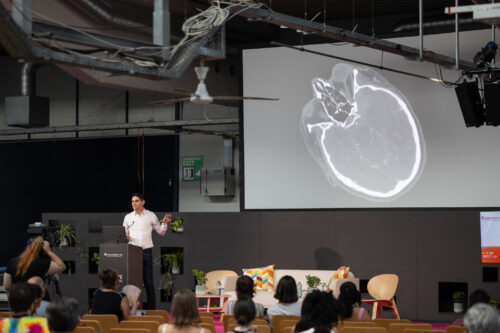
Alternatives | Digital Technologies of Hope
Albert Ortig (AT), Apolinário Passos (BR), Thomas Nayer (AT), Claudio Silvestrin (DE), Frederike Kaltheuner (DE)
A true cabinet of curiosities of the digital age, the practices presented at the end of STARTS Day create a sense of hope through their nature and focus, as well as their diversity. They become a collage of intentional, thought-through uses of digital technologies that can help us envision a deliberate digital future – one…
-
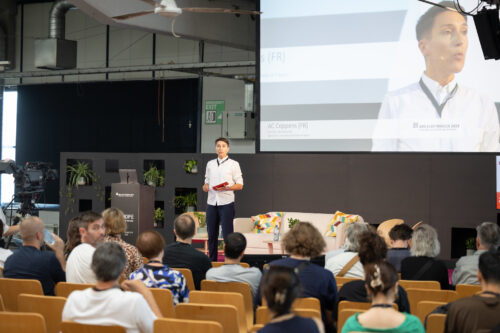
Welcome and Introduction
AC Coppens (FR)
Introduction for the AI and Artistic Creation Day Bio
-
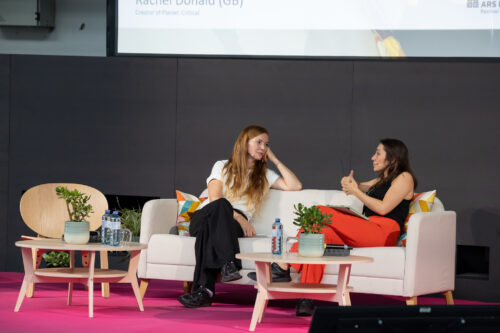
And Action! Green Filming or How to Turn Climate Angst into Agency
Pheline Roggan (DE)
In her keynote lecture, Pheline Roggan will talk about how she turned a difficult phase of climate anxiety, panic and helplessness into successfully campaigning for sustainable film production and how she confronts the crisis with the idea that we are not (yet) living in the best of all possible worlds: It is about the power…
-
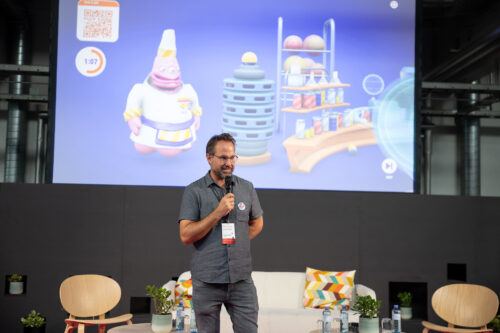
Replay: Let’s Create a New Planet Together
Konstantin Mitgutsch (AT)
Interactive Session with Konstantin Mitgutsch In this interactive session with game designer and play researcher Konstantin Mitgutsch, participants will use their phones to collaboratively create a new planet, experiencing firsthand the power of cooperation and creativity. Through this fun and challenging experiment, we will discover how reimagining life as a more cooperative and fair game…
-
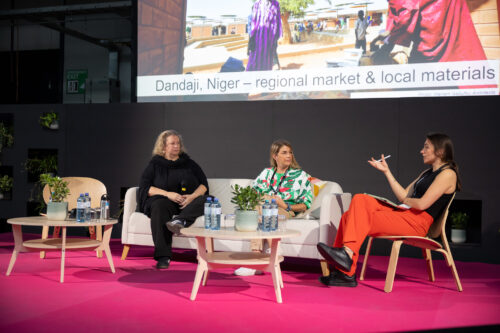
Systemic change through eco-urban planning
Katja Schechtner (AT), Neda Kostandinovic (RS), Rachel Donald (GB)
According to a UN forecast, the urban population will make up more than 65 percent of the world’s population by 2050. How can cities and metropoles face the challenges of meeting the Paris Agreement goals while struggling with problems such as rising temperatures and reduced water availability, but nevertheless constantly grow and expand?
-
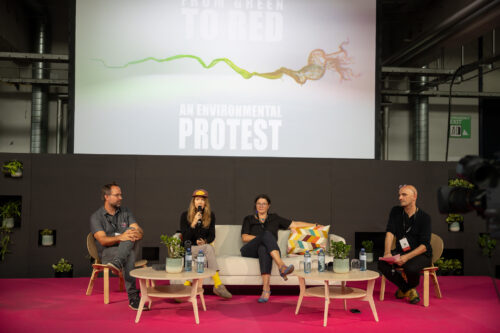
Systemic Change Through Climate Literacy
Christiane Gerstetter (DE), Beatie Wolfe (US), Konstantin Mitgutsch (AT), Miha Turšič (SI/NL)
This panel brings together and showcases various initiatives that represent forms of action as well as possible incentives and approaches for empowerment in order to create climate literacy and climate justice.
-
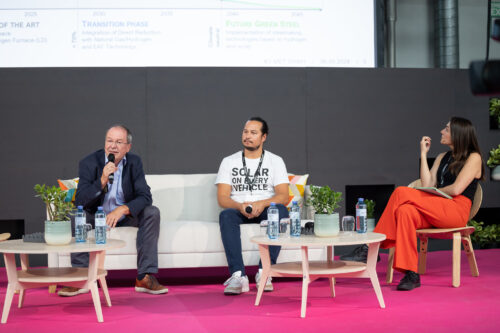
Reinventing | Green mobility, energy and construction
Thomas Bürgler (AT), Denis Azhar (GB), Rachel Donald (GB)
As countries around the world strive to build and expand cities and infrastructure, mobility and construction are two key industries and central to the discussions when it comes to the green transition. Steel manufacturing produces more CO2 than any other heavy industry, comprising around 8% of total global emissions.
-
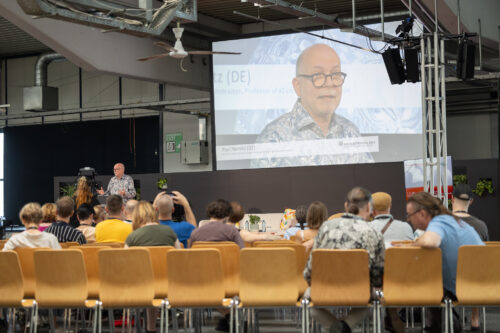
Culture, Democracy, the Rule of Law and the Critical Practice of AI
Paul Nemitz (DE), Frederike Kaltheuner (DE)
The idea that an innovative and positive future will emerge from artificial intelligence is misguided. It is time for us to stand up for the primacy of democracy over technology and business models.
-
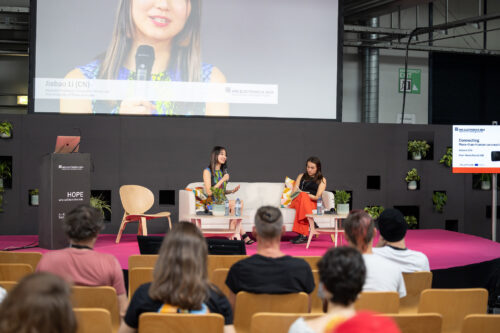
Connecting | More-than-human co-creation
Jiabao Li (CN), Rachel Donald (GB)
In this fireside chat, artist Jiabao Li will be in conversation with Rachel Donald to talk about how her work addresses climate change, interspecies co-creation, humane technology and perceptions by using methods of co-designing with non-human species as an artistic strategy to explore other-than-human intelligences and shift our perspectives.